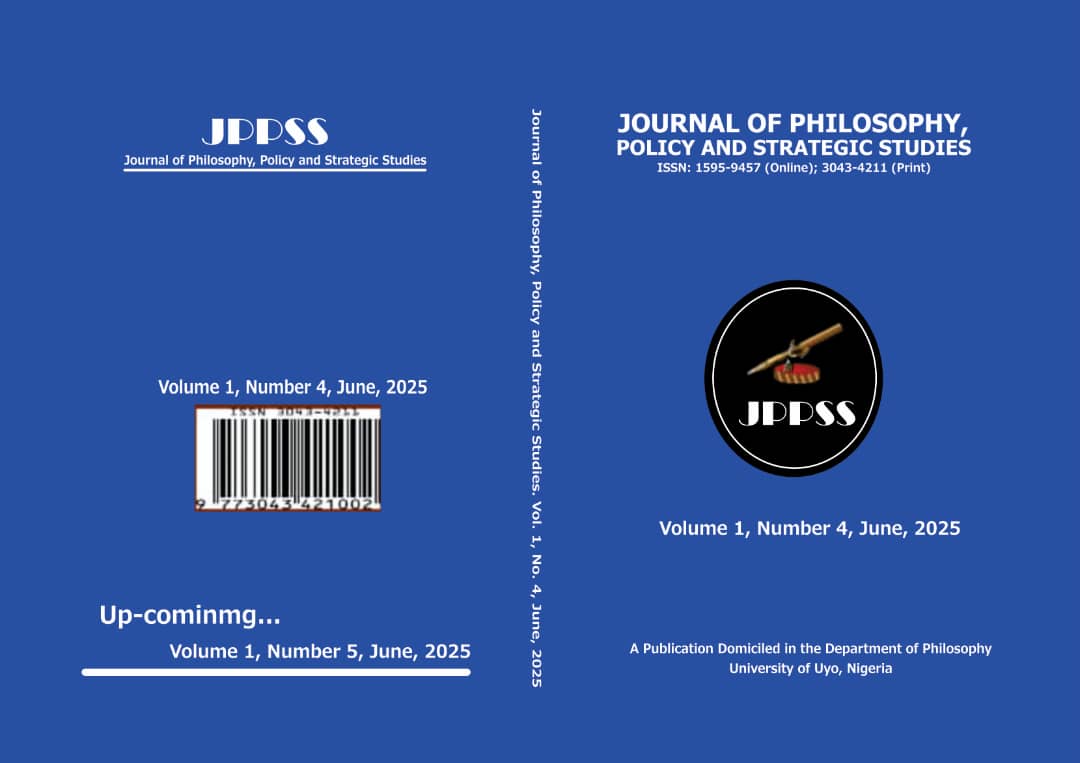IMMANUEL KANT ON GOODWILL AND THE MORAL CRISIS IN NIGERIA: A CRITIQUE
NkutJesus Pius Ekpoudom 1
Francis I. Minimah 2
Department of Philosophy, University of Port Harcourt, Nigeria 1 & 2
Corresponding Email: nkutjesuse@gmail.com 1
Abstract
This study critically examines Immanuel Kant’s notion of goodwill and its relevance to the pervasive moral crisis in Nigeria. Kant defines goodwill as the only moral quality that is intrinsically good without qualification, regardless of its consequences. Amid widespread corruption and governance failures in Nigeria, this study explores the applicability of Kant’s ethical principle of duty-bound action motivated by goodwill. The objective is to assess how Kant’s idea of duty driven by moral law can guide ethical reform in Nigeria. Using a qualitative analytical method, the study examines how Kantian goodwill can inform moral reform in Nigeria’s ethical, political, and legal structures. It evaluates institutional shortcomings in the judiciary, law enforcement, and public service, arguing that the erosion of moral duty contributes to Nigeria’s ethical crisis. The study shows that promoting moral actions based on reason and duty can foster ethical leadership and accountability. Findings suggest Kantian goodwill is a viable moral compass capable of redirecting Nigeria from ethical decline toward a just and responsible society by encouraging honest leadership and stronger institutions. It argues that actions guided by reason and duty, not personal interest, are essential for rebuilding integrity in leadership and public service. The study concludes that Kantian moral philosophy be integrated into civic education, leadership development, and public sector training to promote ethical responsibility. It recommends Kant’s concept of goodwill as a foundation for moral and institutional transformation.
Keywords: Immanuel Kant, Goodwill, Categorical Imperative, Moral crisis, Corruption, Ethical Reform, Nigeria.


